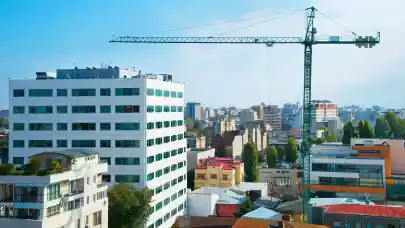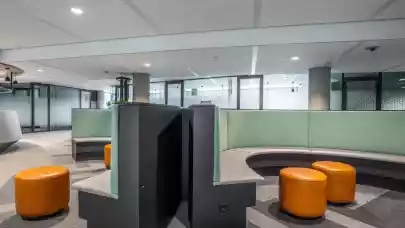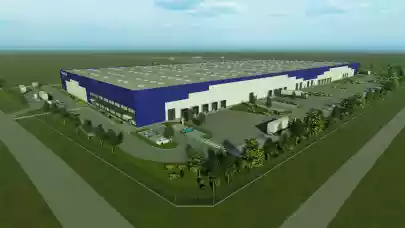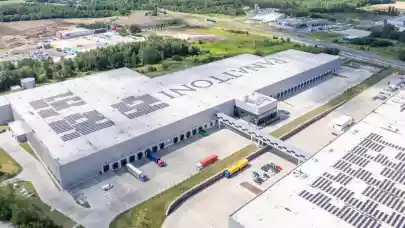
Development is booming in almost all segments of the Romanian market, but developers still need to overcome a number of legal and regulatory challenges before they can start building. Then, once construction is complete, they must realise that tenants have become more aware and more “choosey”. Răzvan Gheorghiu-Testa, Partner at Țuca Zbârcea & Asociații and Head of the firm’s Real Estate Practice Group reviewed some of the issues that may arise when developing or leasing a new building in Romania.
Răzvan Gheorghiu-Testa will chair the Romanian investment roundtable at the upcoming SEE Property Forum 2018 in Bucharest, co-organised by Property Forum and RICS.
From a legal perspective, has it become easier in recent years to develop in Romania?
The number of new developments has increased visibly over the past years. While the focus remains on office buildings primarily located in Bucharest, retail seems to keep the pace and residential is catching up fast. Whether the process itself became easier (once the market became more mature) or not, it is quite difficult to say, but the market is moving very fast. From a legal perspective, one positive note is that there is increased certainty as regards title over the lands and this is mainly due to the fact that numerous title claims which were filed based on the special restitution laws have been settled during the past years by means of final court decisions, hence there are fewer concerns in respect of potential title flaws. On the other hand, things look less good when we talk about the permitting process, where there is still place for significant improvement. The applicable regulations have changed constantly over the last few years and very often investors and advisors alike criticize the sometimes draconian procedures that need to be followed for getting a building permit or a fire permit upon completion of a building.

What are key issues developers need to consider when wanting to start a new project?
Here things have not changed dramatically (from a legal standpoint). As always, the first step is to assess the existence of a valid and unchallengeable ownership title over the land (with the positive note already referred above). Then comes the technical assessment (i.e. what can be built on that particular plot of land) and the environmental one, especially in case of former industrial platforms. While the legal analysis of the ownership title implies the performance of a title due diligence (ideally on the full title chain, i.e. starting with the original owner), the technical verification implies at least obtaining an urban planning certificate and, if the case, additional technical reports (e.g. geotechnical study) with a view to determine the buildable parameters of that plot, certain legal or technical constraints as well as the procedure to be followed for obtaining the building permit.
Based on your experience how have office lease agreements changed in recent years? Are there any new contractual additions tenants are insisting on?
There is no real pattern in this respect except that tenants are becoming more “choosey”, but this is good on the other hand as the landlords have to raise the bar in terms of quality, incentives and so on. In any case, tenants being more or less flexible depends not only on tenant’s group real estate policy (which is nevertheless very important) but also on the reputation of the landlord. The stronger the track record of the landlord, the higher the level of comfort of the tenant and, therefore, a more lenient approach towards the (sometimes very) long “engagement”.
However, if I would have to pick one particular area where tenants request full comfort and assurances from the landlord, this is the fire permit. Due to the recent changes in the fire safety authorization process, tenants always require and secure in the lease agreement full assistance from the landlord during fire safety permitting of the leased office premises, as well as full undertaking from the landlord in terms of building’s compliance with fire safety regulations throughout the entire duration of the agreement.
What are the main legal challenges tenants and landlords need to face these days?
Lease agreements have become more and more standardized (and indeed lengthy, sometimes even lengthier than a sale-purchase agreement). Some of the standardized provisions represent the input and requirements of the developer’s financing bank (which in most cases are difficult to overcome). There is not much room left for negotiation as regards the minimum duration (e.g. unbreakable 5-year term for office lease), standard reps & warranties or insurance, but, depending on the leverage the tenant has in the negotiation process (large corporations or blue-chip tenants always have an increased negotiation power) things are different as regards tenant’s incentives (fit out contribution and rent-free periods, which sometimes result in a sizeable adjustment of the headline rent). A diligent tenant will secure a continuous use of the premises, with minimum interruptions throughout the lease duration and with the landlord acting promptly in case major repair works are needed, while a diligent landlord will try to limit its financial exposure in any case of the termination occurring as a result of defaulting conduct. Non-compete clauses are also a challenging topic, some tenants have very harsh requirements in terms of who their co-tenants should not be, but such non-compete clause should always be compliant with the relevant antitrust regulations.



